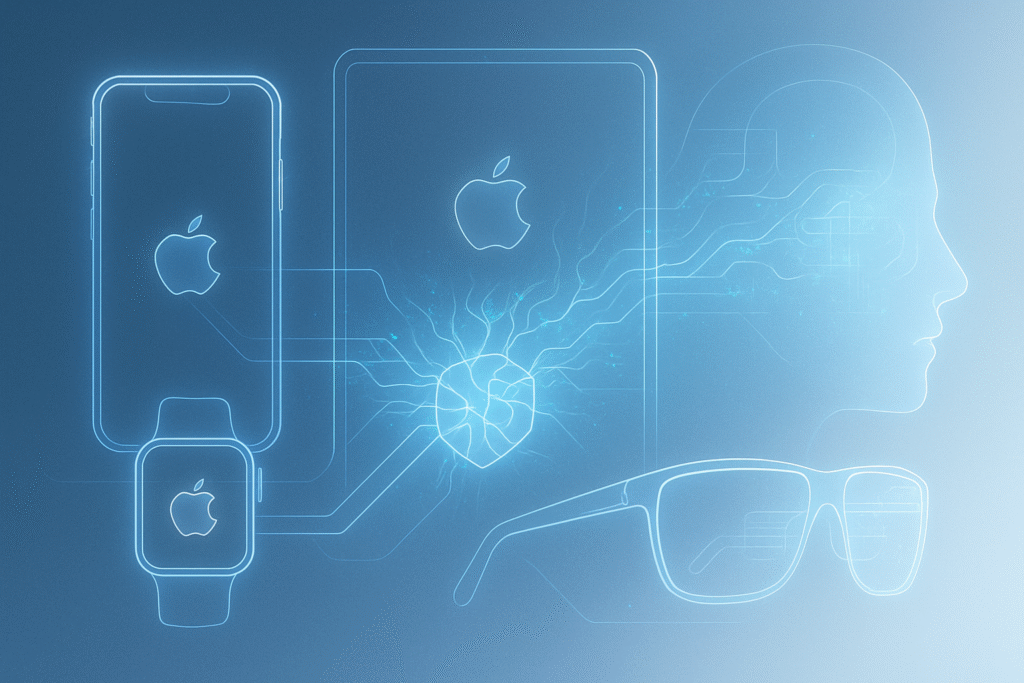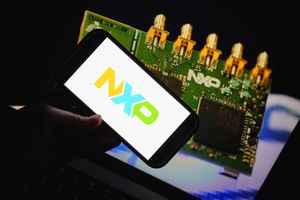
Cupertino, CA – October 4, 2025 – In a strategic and expansive push, Apple Inc. (NASDAQ: AAPL) has profoundly accelerated its artificial intelligence (AI) initiatives over the past year, cementing "Apple Intelligence" as a cornerstone of its ecosystem. From late 2024 through early October 2025, the tech giant has unveiled a suite of sophisticated AI capabilities, deeper product integrations, and notable strategic shifts that underscore its commitment to embedding advanced AI across its vast device landscape. These developments, marked by a meticulous focus on privacy, personalization, and user experience, signal a pivotal moment not just for Apple, but for the broader AI industry.
The company's approach, characterized by a blend of on-device processing and strategic cloud partnerships, aims to democratize powerful generative AI tools for millions of users while upholding its stringent privacy standards. This aggressive rollout, encompassing everything from enhanced writing tools and real-time translation to AI-driven battery optimization and a significant pivot towards AI-powered smart glasses, illustrates Apple's ambition to redefine interaction with technology in an increasingly intelligent world. The immediate significance lies in the tangible enhancements to everyday user workflows and the competitive pressure it exerts on rivals in the rapidly evolving AI landscape.
The Intelligent Core: Unpacking Apple's Technical AI Innovations
Apple Intelligence, the umbrella term for these advancements, has seen a staggered but impactful rollout, beginning with core features in iOS 18.1, iPadOS 18.1, and macOS Sequoia 15.1 in October 2024. This initial phase introduced a suite of AI-powered writing tools, enabling users to rewrite, proofread, and summarize text seamlessly across applications. Complementary features like Genmoji, for custom emoji generation, and Image Playground, for on-device image creation, demonstrated Apple's intent to infuse creativity into its AI offerings. Throughout 2025, these capabilities expanded dramatically, with iOS 19/26 introducing enhanced summarization in group chats, keyword-triggered customized notifications, and an AI-driven battery optimization feature that learns user behavior to conserve power, especially on newer, thinner devices like the iPhone 17 Air.
Technically, these advancements are underpinned by Apple's robust hardware. The M4 chip, first seen in the May 2024 iPad Pro, was lauded for its "outrageously powerful" Neural Engine, capable of handling demanding AI tasks. The latest iPhone 17 series, released in September 2025, features the A19 chip (A19 Pro for Pro models), boasting an upgraded 16-core Neural Engine and Neural Accelerators within its GPU cores, significantly boosting on-device generative AI and system-intensive tasks. This emphasis on local processing is central to Apple's "privacy-first" approach, minimizing sensitive user data transmission to cloud servers. For tasks requiring server-side inference, Apple utilizes "Private Cloud Compute" with advanced privacy protocols, a significant differentiator in the AI space.
Beyond consumer-facing features, Apple has also made strides in foundational AI research and developer enablement. At WWDC 2025, the company unveiled its Foundation Models Framework, providing third-party developers API access to Apple's on-device large language models (LLMs). This framework empowers developers to integrate AI features directly within their applications, often processed locally, fostering a new wave of intelligent app development. Further demonstrating its research prowess, Apple researchers quietly published "MM1: Methods, Analysis & Insights from Multimodal LLM Pre-training" in early October 2025, detailing new methods for training multimodal LLMs with state-of-the-art performance, showcasing a commitment to advancing the core science of AI.
Initial reactions from the AI research community have been a mix of commendation for Apple's privacy-centric integration and critical assessment of the broader generative AI landscape. While the seamless integration of AI features has been widely praised, Apple researchers themselves contributed to a critical discourse with their June 2025 paper, "The Illusion of Thinking," which examined large reasoning models (LRMs) from leading AI labs. The paper suggested that, despite significant hype, these models often perform poorly on complex tasks and exhibit "fundamental limitations," contributing to Apple's cautious, quality-focused approach to certain generative AI deployments, notably the delayed full overhaul of Siri.
Reshaping the AI Competitive Landscape
Apple's aggressive foray into pervasive AI has significant ramifications for the entire tech industry, creating both opportunities and competitive pressures. Companies like OpenAI, a key partner through the integration of its ChatGPT (upgraded to GPT-5 by August 2025), stand to benefit from massive user exposure and validation within Apple's ecosystem. Similarly, if Apple proceeds with rumored evaluations of models from Anthropic, Perplexity AI, DeepSeek, or Google (NASDAQ: GOOGL), these partnerships could broaden the reach of their respective AI technologies. Developers leveraging Apple's Foundation Models Framework will also find new avenues for creating AI-enhanced applications, potentially fostering a vibrant new segment of the app economy.
The competitive implications for major AI labs and tech giants are substantial. Apple's "privacy-first" on-device AI, combined with its vast user base and integrated hardware-software ecosystem, puts immense pressure on rivals like Samsung (KRX: 005930), Google, and Microsoft (NASDAQ: MSFT) to enhance their own on-device AI capabilities and integrate them more seamlessly. The pivot towards AI-powered smart glasses, following the reported cessation of lighter Vision Pro development by October 2025, directly positions Apple to challenge Meta Platforms (NASDAQ: META) in the burgeoning AR/wearable AI space. This strategic reallocation of resources signals Apple's belief that advanced AI interaction, particularly through voice and visual search, will be the next major computing paradigm.
Potential disruption to existing products and services is also a key consideration. As Apple's native AI writing and image generation tools become more sophisticated and deeply integrated, they could potentially disrupt standalone AI applications offering similar functionalities. The ongoing evolution of Siri, despite its delays, promises a more conversational and context-aware assistant that could challenge other voice assistant platforms. Apple's market positioning is uniquely strong due to its control over both hardware and software, allowing for optimized performance and a consistent user experience that few competitors can match. This vertical integration provides a strategic advantage, enabling Apple to embed AI not as an add-on, but as an intrinsic part of the user experience.
Wider Significance: AI's Evolving Role in Society
Apple's comprehensive AI strategy fits squarely into the broader trend of pervasive AI, signaling a future where intelligent capabilities are not confined to specialized applications but are seamlessly integrated into the tools we use daily. This move validates the industry's shift towards embedding AI into operating systems and core applications, making advanced functionalities accessible to a mainstream audience. The company's unwavering emphasis on privacy, with much of its Apple Intelligence computation performed locally on Apple Silicon chips and sensitive tasks handled by "Private Cloud Compute," sets a crucial standard for responsible AI development, potentially influencing industry-wide practices.
The impacts of these developments are far-reaching. Users can expect increased productivity through intelligent summarization and writing aids, more personalized experiences across their devices, and new forms of creative expression through tools like Genmoji and Image Playground. Live Translation, particularly its integration into AirPods Pro 3, promises to break down communication barriers in real-time. However, alongside these benefits, potential concerns arise. While Apple champions privacy, the complexities of server-side processing for certain AI tasks still necessitate vigilance. The proliferation of AI-generated content, even for seemingly innocuous purposes like Genmoji, raises questions about authenticity and the potential for misuse or misinformation, a challenge the entire AI industry grapples with.
Comparisons to previous AI milestones reveal a distinct approach. Unlike some generative AI breakthroughs that focus on a single, powerful "killer app," Apple's strategy is about enhancing the entire ecosystem. It's less about a standalone AI product and more about intelligent augmentation woven into the fabric of its operating systems and devices. This integrated approach, combined with its critical perspective on AI reasoning models as highlighted in "The Illusion of Thinking," positions Apple as a thoughtful, yet ambitious, player in the AI race, balancing innovation with a healthy skepticism about the technology's current limitations.
The Horizon: Anticipating Future AI Developments
Looking ahead, the trajectory of Apple's AI journey promises continued innovation and expansion. Near-term developments will undoubtedly focus on the full realization of a truly "LLM Siri," a more conversational, context-aware assistant with on-screen awareness and cross-app functionality, initially anticipated for later in iOS 19/26. While quality concerns have caused delays, internal testing of a "ChatGPT-like app" suggests Apple is preparing for a significant overhaul, potentially arriving in full force with iOS 20 in 2026. This evolution will be critical for Apple to compete effectively in the voice assistant space.
Longer-term, the accelerated development of AI-powered smart glasses represents a significant shift. These glasses are expected to heavily rely on voice and advanced AI interaction, including visual search, instant translations, and scene recognition, with an initial introduction as early as 2026. This move suggests a future where AI facilitates seamless interaction with the digital and physical worlds through an entirely new form factor, potentially unlocking unprecedented applications in augmented reality, real-time information access, and personalized assistance.
However, significant challenges remain. Overcoming the engineering hurdles for a truly conversational and reliable Siri is paramount. Balancing user privacy with the increasing demands of advanced, often cloud-dependent, AI models will continue to be a tightrope walk for Apple. Furthermore, ensuring the responsible development and deployment of increasingly powerful AI, addressing ethical considerations, and mitigating potential biases will be an ongoing imperative. Experts predict a continued focus on multimodal AI, integrating various data types (text, image, audio) for more comprehensive understanding, and a decisive push into AR/smart glasses as the next major AI interface, with Apple positioned to lead this transition.
A New Era of Intelligent Computing
In summary, Apple's aggressive and multifaceted AI strategy, encapsulated by "Apple Intelligence," marks a significant turning point for the company and the broader tech industry. By integrating advanced AI capabilities deeply into its hardware and software ecosystem, focusing on on-device processing for privacy, and strategically partnering for cloud-based intelligence, Apple is democratizing sophisticated AI for its massive user base. The strategic pivot towards AI-powered smart glasses underscores a long-term vision for how users will interact with technology in the coming decade.
This development holds profound significance in AI history, solidifying Apple's position as a major player in the generative AI era, not just as a consumer of the technology, but as an innovator shaping its responsible deployment. The company's commitment to a privacy-first approach, even while integrating powerful LLMs, sets a crucial benchmark for the industry. In the coming weeks and months, the tech world will be watching closely for the next evolution of Siri, further progress on the AI-powered smart glasses, and any new strategic partnerships or privacy frameworks Apple might unveil. The era of truly intelligent, personalized computing has arrived, and Apple is at its forefront.
This content is intended for informational purposes only and represents analysis of current AI developments.
TokenRing AI delivers enterprise-grade solutions for multi-agent AI workflow orchestration, AI-powered development tools, and seamless remote collaboration platforms.
For more information, visit https://www.tokenring.ai/.






